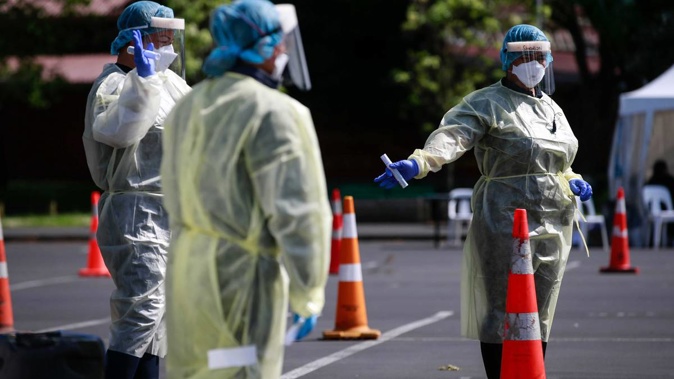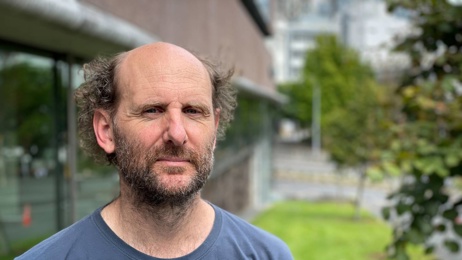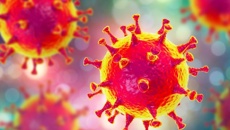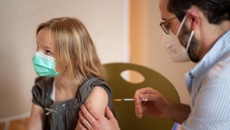
- Delta in the South Island: Hopes first case will boost jab rates
- Blenheim residents urged to get tested, as new locations of interest released
- After nervously outing herself, Far North woman with Covid finds community support
- Covid patients shifted around hospitals to ease 'workload'
Many people in Northland want to move to level 3 after cases were detected in the region, National's health spokesperson says.
There are four cases of Covid-19 in the region but it's still at level two.
All of them are related to each other and the two newest cases are children under 12.
National's Dr Shane Reti's been helping vaccinate people in the Far North.
He's told TVNZ's Q and A there's real concern in Northland because of the new cases, and the fact there are no locations of interest for Whangarei yet.
Reti says iwi, business people and others want to move up a level to keep the region safe.
/cloudfront-ap-southeast-2.images.arcpublishing.com/nzme/QDXGSGXEGCOE3AVWBQGEFBWV2Y.jpg)
Jabs Auckland needs to reach first 90% milestone
Just under 16,000 jabs stand between a district health board-wide first dose vaccination rate of at least 90 per cent in Auckland.
Yesterday, as 104 new Covid-19 cases were announced, including a first Delta case in the South Island, Auckland Metro - which covers the three district health board areas in our largest city - reached 90 per cent for first vaccinations.
That means 1,286,279 Aucklanders have now received a first Pfizer dose. Seventy-five per cent - just over 1.07 million - have received a second dose, Ministry of Health figures showed.
/cloudfront-ap-southeast-2.images.arcpublishing.com/nzme/RYS5FP2IQRQQ5ST2XCGQH3XAYQ.jpg)
The figures also showed 93 per cent of the eligible population in the Auckland District Health Board area had, as of yesterday, received a first dose of the vaccine, 90 per cent in Waitematā DHB area and 87 per cent in Counties Manukau DHB area.
Prime Minister Jacinda Ardern announced on Friday a new "traffic light" system to manage Covid-19 when the country's 20 district health boards have 90 per cent of their eligible population fully vaccinated.
/cloudfront-ap-southeast-2.images.arcpublishing.com/nzme/6BXRMQRBEG4DYJGT52DZN4MWNQ.jpg)
The traffic light system, which will only kick in for Auckland when all three Auckland DHBs get to a 90 per cent double-vaccination rate, will use vaccination certificates to allow freedoms for double-dosed Kiwis.
Auckland, where the August Delta outbreak has lingered and, lately, ballooned, to keep the city in either level 3 or 4 lockdown for 10 weeks and counting, still has a way to go.
On Friday, 18,709 doses were given in Auckland, among 44,750 nationwide.
Nationally, 11,368 were first doses and 33,382 second doses.
But getting closer to 90 per cent first jabbed in all three Auckland DHBs is a good sign, and Auckland's Manukau ward councillor Alf Filipaina said he's confident Counties Manukau will soon join the two other Auckland DHBs at 90 per cent-plus first-dose-done.
Just over 418,500 of Counties Manukau's eligible population of 482,773 - children aged under 12 can't yet be vaccinated - have received their first dose.
That leaves 15,949 people still needing to get their first vaccination for the area to hit 90 per cent.
The ministry didn't have a breakdown by each Auckland DHB, but 3975 first doses were given to Auckland Metro residents on Friday.
"I'm confident we'll get there," Filipaina said of the 90 per cent goal, citing in particular the number of pop-up vaccination drives taking place, or being planned, in the southern parts of the city.
One organised by Otara's South Seas Healthcare in the car park of the Otara Scorpions Rugby League Club grounds had resulted in nearly 500 people getting vaccinated on Friday and Saturday.
"And the club president there, Tagaloa Willie Maea, told me most [of them] were young."
More are planned, including in Otara town centre, Māngere and Manurewa.
"The pop ups - they work. They work because they have incentives for the community to go there, whether it be a food basket or vouchers, and it's a matter of getting a family to go and get vaccinated.
"It is about protecting our family, our whānau, our aiga."
/cloudfront-ap-southeast-2.images.arcpublishing.com/nzme/SBSNBWJIAPVZ3VK32W6MVSSIEY.jpg)
Vaccination numbers were good for the Samoan and Tongan communities, and other pop-up vaccination events had also been held for Fijian, Cook Islands and Niuean communities, Filipaina said.
Among Māori 389,884 or 68 per cent nationally have had their first dose while 272,446 or 48 per cent have had their second dose.
In Pacific people, the number of first doses has hit 235,267 or 82 per cent nationally, while 179,554 second doses or 63 per cent have been given out.
Yesterday's 104 new cases were made up of 91 in Auckland, eight in Waikato, four in Northland and one in Blenheim.
Fifty-five people were in hospital yesterday, including five in intensive care. The average age of those in hospital is 43, the Ministry of Health said.
The Blenheim case was a person who flew to the Marlborough town from Rotorua on Thursday. The case is thought to be linked to the Te Awamutu, Waikato, cluster.
A small number of close contacts have been identified and are isolating with tests being arranged. No locations of interest have, as yet, been identified.
The Northland cases, which include two first revealed on Friday, are all related to each other and are contacts of a recently diagnosed case in Auckland. Seven of the new Waikato cases are in Te Awamutu and one in Hamilton.
Out of Friday's 129 cases, 53 were infectious while in the community. The other 76 were in isolation while infectious.
And of the new cases, 43 are linked - including 33 being household contacts - and 61 remain unlinked, with investigations continuing.
Cases from the past 14 days yet to be linked back to known cases number 274.
Take your Radio, Podcasts and Music with you









